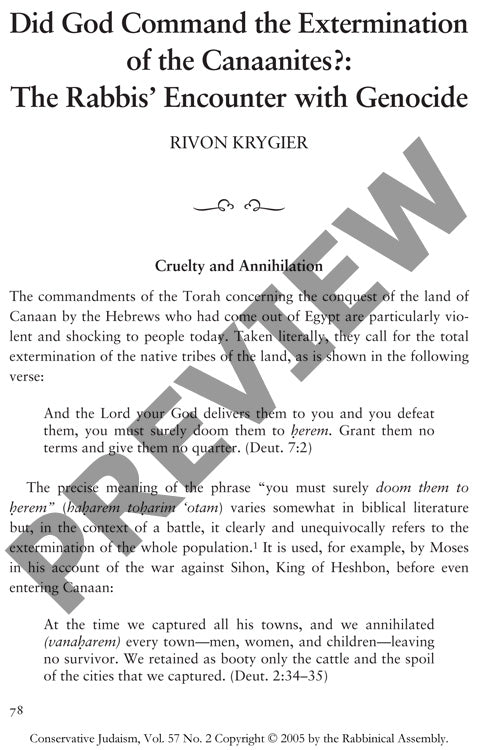Did God Command the Extermination of The
Couldn't load pickup availability
Medieval Jewish scholars grappled intensely with one of the Torah's most ethically challenging commands: the apparent divine mandate to exterminate the Canaanite peoples. Through careful analysis of midrashic literature, Talmudic sources, and commentaries by leading medieval authorities including Rashi, Nahmanides, and Maimonides, a complex interpretive tradition emerges that sought to reconcile this seemingly genocidal injunction with ethical principles. Most rabbinic exegetes discovered textual ambiguities that permitted alternative readings, ultimately developing two primary paths to salvation: peaceful surrender and genuine repentance from idolatry. Four distinct scholarly positions crystallized, ranging from Rashi's restrictive acceptance of conversion only, to Nahmanides' broader allowance for surrender regardless of geographical location. The rabbis' primary concern centered on preventing idolatrous contamination rather than enforcing ethnic elimination. Their hermeneutical innovations established crucial precedent that such biblical commandments cannot justify contemporary persecution of non-Jewish populations in the Land of Israel. This research traces how Jewish legal authorities consistently worked to provide escape mechanisms from the biblical extermination mandate through sophisticated textual interpretation and ethical reasoning.

More Information
-
Physical Description
-
Publication Information
Published 2005
ISBN
-
Publication Credits
Rivon Krygier

